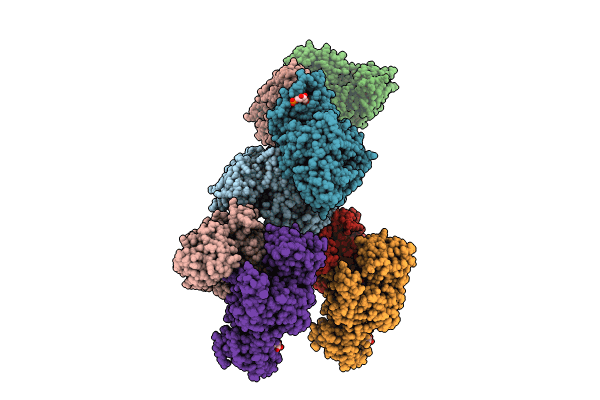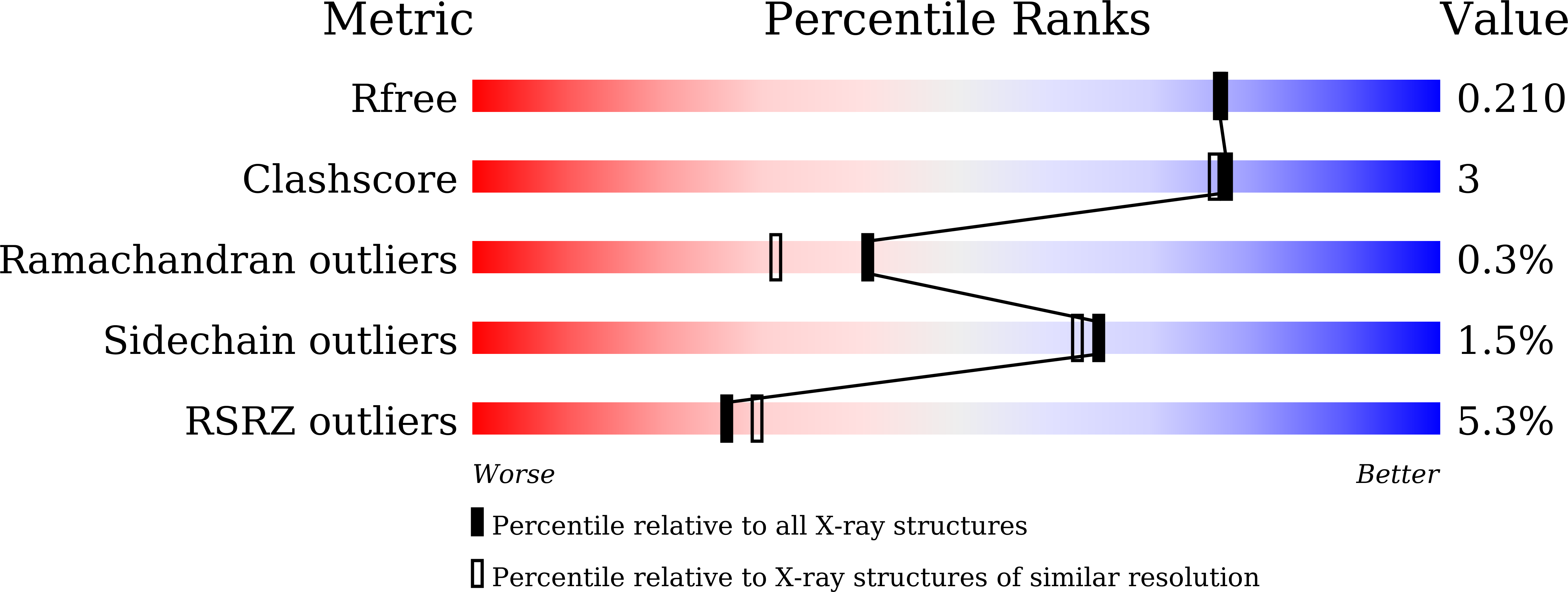
Deposition Date
2024-05-21
Release Date
2024-07-31
Last Version Date
2024-08-07
Entry Detail
PDB ID:
8ZLY
Keywords:
Title:
Crystal structure of Streptococcus pneumoniae pyruvate kinase in complex with oxalate and fructose 1,6-bisphosphate and UDP
Biological Source:
Source Organism(s):
Streptococcus pneumoniae R6 (Taxon ID: 171101)
Expression System(s):
Method Details:
Experimental Method:
Resolution:
1.89 Å
R-Value Free:
0.20
R-Value Work:
0.16
R-Value Observed:
0.16
Space Group:
P 21 21 2


